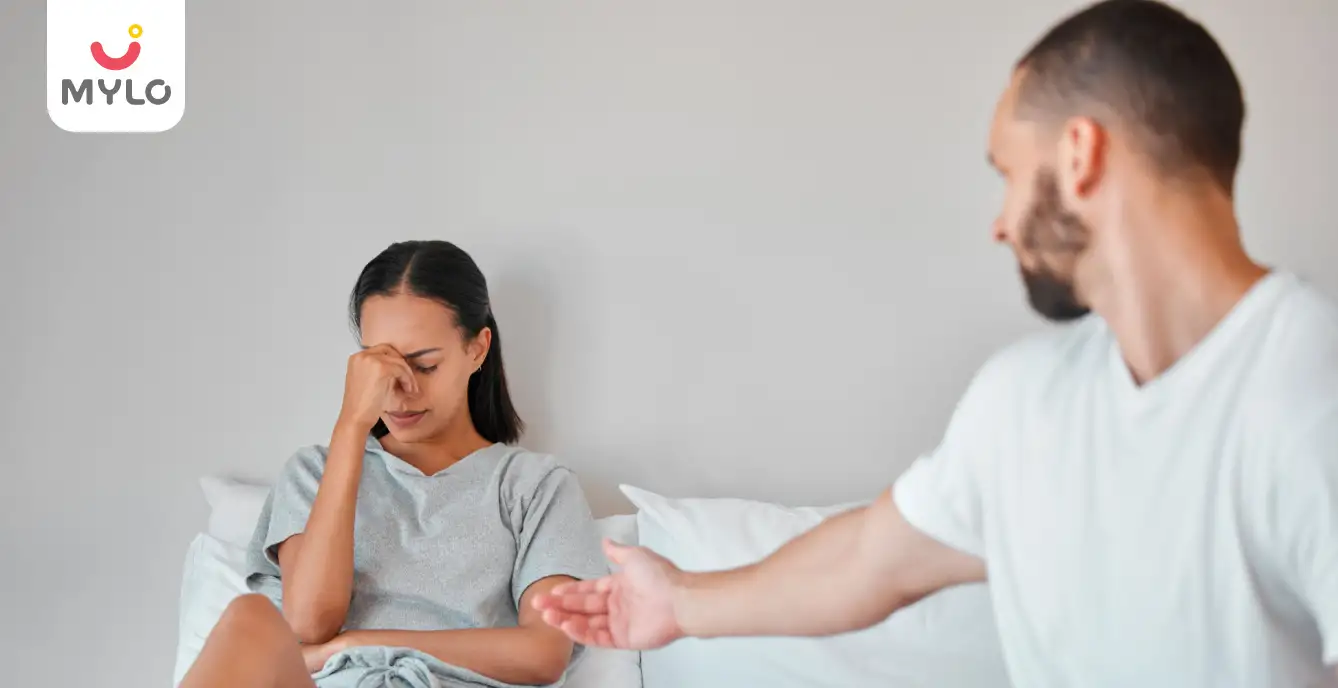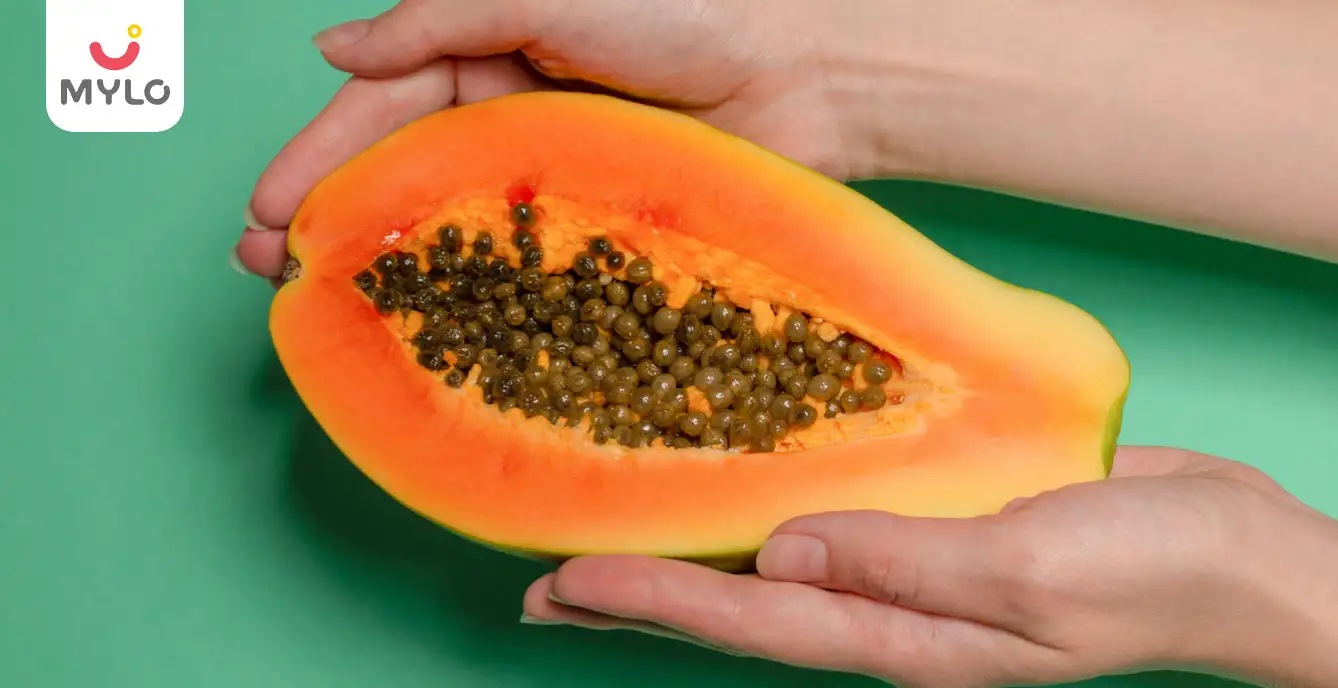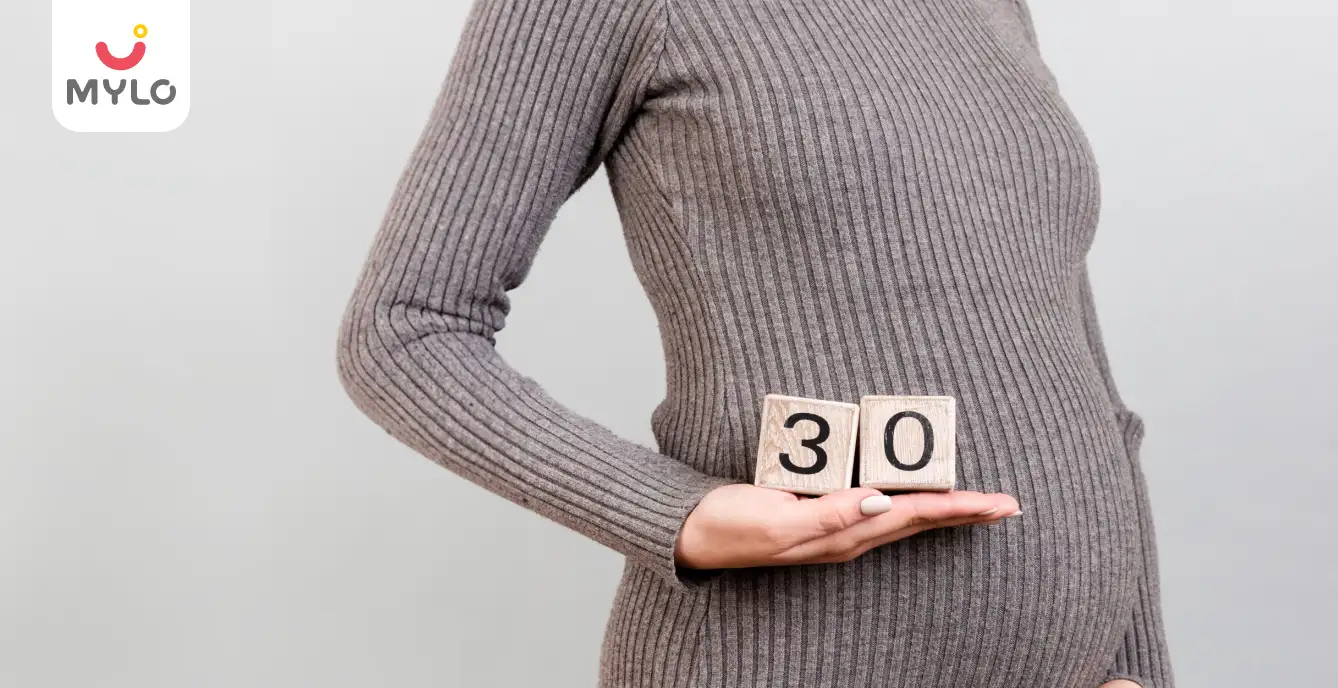In this Article
Ovulation
Bloating During Ovulation: The Ultimate Guide to Understanding and Alleviating Discomfort
Updated on 11 December 2023
Ah, the joys of being a woman! From the miraculous ability to create life to the not-so-miraculous monthly visits from Aunt Flo, our bodies certainly know how to keep us on our toes. And just when you thought you had it all figured out, here comes bloating during ovulation, crashing the party like an unwelcome guest.
If you've ever experienced that uncomfortable feeling of your belly ballooning up during ovulation, you're not alone. Many women go through this frustrating ordeal, and it's time we shed some light on the subject. In this article, we'll explore its causes, symptoms, and most importantly, how to find relief from this monthly bloating monster.
Is it common to experience back pain and bloating during ovulation?
Many women experience various physical symptoms during their menstrual cycle, and bloating while ovulating is one of them. Ovulation is the process where an egg is released from the ovary and travels down the fallopian tube, making it ready for fertilization.
Along with bloating, some women may also experience back pain during this time. While it is common to experience these symptoms, it is essential to understand their causes and find ways to alleviate the discomfort.
What are the symptoms of ovulation bloating?
Ovulation bloating refers to the feeling of fullness and tightness in the abdominal area during the ovulation period. This discomfort is caused by the hormonal changes that occur in a woman's body during this time. The rise in estrogen levels can lead to water retention, which contributes to bloating.
Other symptoms that may accompany it include:
-
Mild pelvic pain
-
Breast tenderness
-
An increase in vaginal discharge
It is important to note that not all women experience bloating, and the severity of symptoms may vary from person to person. Some women may only experience mild bloating, while others may find it more bothersome.
How long does ovulation bloating last?
The duration of bloating can vary among women. For most women, bloating lasts for a few days, typically ranging from one to three days. However, it is not uncommon for some women to experience bloating for a longer duration. Factors such as individual hormonal levels and overall health can influence the length of bloating.
If the bloating persists beyond a few days or becomes severe and is accompanied by other concerning symptoms, it is advisable to consult a healthcare professional for further evaluation. They can help determine if there are any underlying conditions contributing to the prolonged bloating.
You may also like: What Are the Signs of Ovulation & How to Estimate When You're Ovulating to Boost Chances of Pregnancy?
What are the causes of bloating during ovulation?
Let us now understand some reasons that may lead to bloating after ovulation and during it:
1. Hormonal changes
The primary cause of bloating is the hormonal fluctuations that occur in a woman's body. The increase in estrogen levels can lead to water retention, causing bloating.
2. Ovarian cysts
Ovarian cysts are fluid-filled sacs that develop on the ovaries. These cysts can cause bloating and discomfort during ovulation.
3. Endometriosis
Endometriosis is a condition where the tissue lining the uterus grows outside of it. This condition can cause bloating and pelvic pain during ovulation.
4. Gastrointestinal issues
Digestive issues such as irritable bowel syndrome (IBS) or gastrointestinal disorders can contribute to bloating during ovulation.
5. Pre-existing conditions
Women with pre-existing conditions such as polycystic ovary syndrome (PCOS) or uterine fibroids may experience more significant bloating and pain during ovulation.
6. Dietary factors
Certain foods such as salty snacks, carbonated drinks, and high-sodium meals can lead to water retention and bloating during and after ovulation.
7. Stress
Stress can affect hormonal balance and digestive function, leading to bloating while one’s ovulating.
How to manage ovulation bloating?
Let us now take a look at some tips that can help you manage back pain and bloating during ovulation:
1. Stay hydrated
Drinking plenty of water can help flush out excess fluid from the body, reducing bloating and constipation after ovulation.
2. Eat a balanced diet
Incorporating a diet rich in fruits, vegetables, whole grains, and lean proteins can promote digestion and minimize bloating.
3. Avoid trigger foods
Identify foods that contribute to bloating and try to avoid or limit their consumption during ovulation.
4. Exercise regularly
Engaging in regular physical activity can help improve digestion, reduce water retention, and alleviate bloating.
5. Practice stress management
Incorporate stress-reducing activities such as yoga, meditation, or deep breathing exercises to minimize the impact of stress on bloating.
6. Use heat therapy
Applying a warm compress or taking a warm bath can help relax the abdominal muscles and provide relief from bloating.
7. Consider over-the-counter remedies
Some over-the-counter medications or herbal remedies may help alleviate bloating symptoms during ovulation. However, it is essential to consult a healthcare professional before trying any new medication.
9. Track your symptoms
Keeping a menstrual cycle diary can help identify patterns and triggers for bloating during ovulation. This information can be helpful when discussing symptoms with a healthcare professional.
By implementing these tips, women can effectively manage and reduce bloating symptoms during ovulation, leading to a more comfortable menstrual cycle experience.
FAQ’s
1. Is it normal to experience bloating after ovulation?
After ovulation, the body produces progesterone, a hormone that prepares the uterus for possible pregnancy. Progesterone can cause water retention and slow down digestion, leading to bloating. While the intensity of bloating may vary, it usually resolves on its own within a few days.
2. How to manage bloating and constipation after ovulation?
Bloating and constipation often go hand in hand, and both can occur after ovulation due to hormonal changes. Increasing fiber intake, staying active and hydrated, avoiding excessive caffeine and alcohol and taking some gentle laxatives may help.
Final Thoughts
Bloating during ovulation is a common occurrence for many women. Understanding the causes and symptoms of ovulation bloating can help women identify if they are experiencing this discomfort. By implementing various strategies such as staying hydrated, eating a balanced diet, and managing stress, women can effectively manage and alleviate this condition.
References
1. Bernstein MT, Graff LA, Avery L, Palatnick C, Parnerowski K, Targownik LE. (2014). Gastrointestinal symptoms before and during menses in healthy women. BMC Womens Health.
2. Ocampo Rebollar A, Menéndez Balaña FJ, Conde Pastor M. (2017). Comparison of affect changes during the ovulatory phase in women with and without hormonal contraceptives. Heliyon.
3. White CP, Hitchcock CL, Vigna YM, Prior JC. (2011). Fluid Retention over the Menstrual Cycle: 1-Year Data from the Prospective Ovulation Cohort. Obstet Gynecol Int.



Written by
Anandita Sharma
Drawing on more than a decade of expertise in administration, Anandita Sharma currently serves as a content operations executive at Mylo. She also takes pleasure in writing meticulously researched and captivating articles.
Read MoreGet baby's diet chart, and growth tips

Related Articles
Related Topics
RECENTLY PUBLISHED ARTICLES
our most recent articles

Stories
Top 15 Akbar and Birbal Stories for Young Kids

Abortion
How Soon After an Abortion Can You Get Pregnant?

Skin Changes
5 Amazing Tea Tree Oil Benefits for Your Skin

PCOS & PCOD
PCOS and Sex: Exploring Impact on Health and Debunking Common Myths

PCOS & PCOD
Papaya for PCOS: Exploring the Link and How It Can Positively Impact Your Health

Fertility
How to Boost Fertility in Your 30s: The Ultimate Guide
- Anovulation Meaning Explained: What You Need to Know About Its Causes & Treatment
- Basal Body Temperature: How It Can Help You Track Ovulation?
- Ovulation Pain: Is It Normal or a Cause for Concern?
- Special Home Remedies For Gas During Pregnancy
- PCOD Problem After Marriage: Debunking Common Misconceptions and Finding Solutions
- White Discharge After Ovulation: A Normal Occurrence or Cause for Concern?
- Normal Ovary Size: How It Varies and What It Means for You
- Things Not to Do After Cervical Cerclage for a Healthy Pregnancy
- 2024 Calendar with Holidays and Festivals of India
- After-Abortion Sex: A Guide to Physical and Emotional Wellness
- Cervical Cerclage: A Closer Look at the Procedure and Its Benefits
- The Ultimate Guide to Panchatantra Stories for Kids
- Which Is Better Normal Or Cesarean Delivery
- How to Get Baby in Right Position for Birth?


AWARDS AND RECOGNITION
Mylo wins Forbes D2C Disruptor award
Mylo wins The Economic Times Promising Brands 2022
AS SEEN IN
















At Mylo, we help young parents raise happy and healthy families with our innovative new-age solutions:
- Mylo Care: Effective and science-backed personal care and wellness solutions for a joyful you.
- Mylo Baby: Science-backed, gentle and effective personal care & hygiene range for your little one.
- Mylo Community: Trusted and empathetic community of 10mn+ parents and experts.
Product Categories
baby test | test | baby lotions | baby soaps | baby shampoo |






